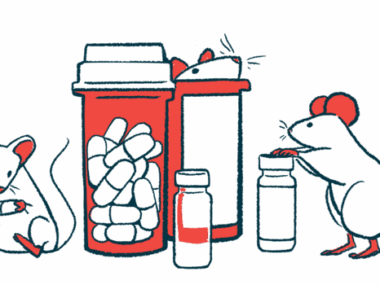Why I chose to continue learning after my ALS diagnosis
How I moved on from a mindset of 'why bother?'
Written by |

Among the many challenges I experienced during my early months with ALS was the eerie prophecy of a life expectancy of two to five years following diagnosis. Besides putting the brakes on all of my future hopes and dreams, it made my brain feel worthless. I’d ask myself, “Why bother reading a book or learning new things? Better to sit, wait, and stare out the window.”
But here I am, 14 years later, writing blog posts and a weekly column, managing a website, and doing daily exercises. Understand that I am in no way claiming my longevity is due to my change in attitude, but my new mindset did help make the years more enjoyable.
It all began with a set of flash cards
When I was attending the University of Iowa in pursuit of a degree in dance, one of the required courses was anatomy. The instructor’s expectation was for us to memorize the Greek and Latin anatomical names of the body’s bones, muscles, joints, and ligaments. My method was to use index cards with a name on one side and a description on the other. I carried this 2-inch stack of cards wrapped in a thick, reddish rubber band everywhere I went, pulling it out whenever and wherever I found myself with a few minutes of free time.
Fortunately, the strategy and those cards helped me ace the class. But I always wondered if I’d ever use all those terms again. Was it useless information taking up space in my brain?
Serendipity with a common language
Fast forward to my first ALS clinic, where I met with a team of jovial physical and occupational therapists. As we discussed my ALS symptom of foot drop, they began using the anatomical name of the muscle involved, telling me I had a weak tibialis anterior. Imagine their surprise when I blurted out the origin, insertion, and action of that muscle.
Although my special flash cards are long gone, when I got home from the clinic, I did find one old anatomy book I saved from my college years. Opening it up, I reviewed the contents, refreshing my memory and igniting my interest in learning more. After researching my notes from previous fitness classes and watching many YouTube videos, I created for myself several short, daily exercise routines that I still do today.
Then I attended an ALS support group, where I discovered other ALS patients who felt sad and lost. That led me to research the ups and downs of mental motivation, which, in turn, led me to the decision to help others in the ALS community. But helping others meant I had to learn how to start a blog, manage a mailing list, design images, make Zoom presentations, and more.
As my computer confidence and self-taught skills grew, I even learned to manage a WordPress website. Well, enough about me, let’s talk about you and your potential.
ALS brings so many ongoing physical changes that we’re often unaware of how stuck we’ve become in the mindset of “why bother?” It’s an attitude and outlook that can hold us back from continuing to share our talents and skills, from feeling valued as a person, and from enjoying a quality life. In other words, living well while living with ALS.
I invite you to keep learning. There’s no useless information, because you never know when you’ll need to use it again.
Note: ALS News Today is strictly a news and information website about the disease. It does not provide medical advice, diagnosis, or treatment. This content is not intended to be a substitute for professional medical advice, diagnosis, or treatment. Always seek the advice of your physician or other qualified health provider with any questions you may have regarding a medical condition. Never disregard professional medical advice or delay in seeking it because of something you have read on this website. The opinions expressed in this column are not those of ALS News Today or its parent company, Bionews, and are intended to spark discussion about issues pertaining to ALS.







Leave a comment
Fill in the required fields to post. Your email address will not be published.